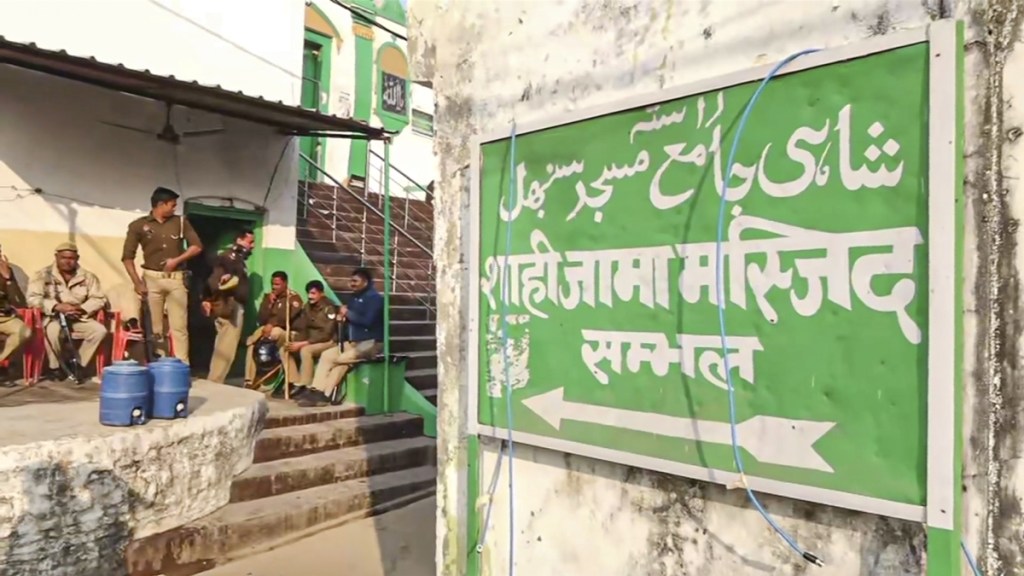The recent legal petitions seeking Hindu rights over Shahi Jama Masjid in Sambhal and Ajmer Sharif Dargah in Ajmer have drawn public attention, but the Sangh Parivar has maintained a conspicuous silence. This quiet stance highlights a mix of ideological commitment, strategic caution, and unease within the organisation.
The petitions echo the Rashtriya Swayamsevak Sangh’s (RSS) historical claims of temples being destroyed and converted into mosques by Islamic invaders. However, Sangh leaders have expressed reservations about the growing number of such claims, fearing they may dilute the focus on key cases like Kashi and Mathura, where they believe Hindus have more “genuine claims.”
“We had three key issues — Ram Mandir, Kashi, and Mathura. By making claims everywhere randomly, it hurts our genuine cases,” a senior RSS leader explained to Indian Express.
Bhagwat’s Cautionary Advice
RSS chief Mohan Bhagwat’s 2022 remarks urging restraint have resurfaced amid these developments. Bhagwat had cautioned against “raising new issues every day” and emphasized that Hindus are not opposed to Muslims. He questioned the necessity of seeking Shivlings in every mosque, highlighting the importance of fostering harmony and focusing on historically significant cases.
Despite Bhagwat’s stance, the silence from the Sangh on the Sambhal and Ajmer petitions suggests internal divisions. While some leaders advocate a “case-by-case” approach, others point to a surge in petitions driven by personal or political motivations, unrelated to the Sangh’s disciplined ideology.
While the Sangh aims to correct perceived “historical injustices,” it is cautious about how these claims affect public perception and its long-term goals. Leaders fear that frivolous claims could undermine the legitimacy of core issues and fuel narratives of political opportunism.
The Sambhal Controversy
The Shahi Jama Masjid in Sambhal, Uttar Pradesh, built during Mughal emperor Babur’s brief reign, became a focal point of controversy following a court-ordered survey of the mosque. The survey was prompted by a petition claiming the mosque was constructed on the site of an ancient Hindu temple. On November 24, violent clashes broke out in Sambhal between local residents and the police, resulting in four deaths. The unrest escalated after the district court directed the survey of the mosque.
Re-examining the Places of Worship Act
The Places of Worship (Special Provisions) Act, 1991, prohibits the alteration of the religious character of any place of worship as it stood on August 15, 1947. The law forbids the conversion of any religious site into one associated with a different religion or sect. However, it does not apply to the longstanding dispute over the Ram Janmabhumi-Babri Masjid, which was resolved by the Supreme Court in 2019.
While the law was intended to reduce religious tensions, recent legal battles—such as those over the Gyanvapi mosque and Ajmer Dargah—have raised doubts about its effectiveness. A petition challenging the law’s validity is currently pending in the Supreme Court.
Ajmer Sharif Dargah Dispute
A similar legal challenge has emerged regarding the Ajmer Sharif Dargah, with claims that the site was originally a Shiva temple. A local court has ordered a survey of the dargah, raising concerns about potential communal strife. The petition, filed in September, seeks to allow worship at the dargah as a Shiva temple. Notices were issued on November 27 to the dargah committee, the Ministry of Minority Affairs, and the Archaeological Survey of India, urging their responses. This legal action follows growing fears of escalating communal tensions, fueled by recent incidents such as the violence in Sambhal.
The Gyanvapi Case
In November 2023, the Supreme Court called for a response from the Gyanvapi mosque management after the Hindu petitioners requested an Archaeological Survey of India (ASI) investigation into the area where a ‘Shivling’ was discovered. This came after a Varanasi court’s order for a “scientific investigation” involving ground-penetrating radar surveys and excavation, which had temporarily been halted by the Supreme Court. The ASI’s survey began in August 2023, with multiple extensions granted for its completion.
The origins of the Gyanvapi dispute date back to a 1991 petition, which argued that the mosque was built by Aurangzeb after demolishing a portion of the Kashi Vishwanath temple. The case remains one of India’s most complex legal and religious battles. Recent developments, including the Varanasi court’s decision to make the ASI report public, and the Supreme Court’s decision in 2023 to allow a scientific survey, have intensified the situation. The court’s stance reflects its earlier position in the Ayodhya case, where it ruled that the Places of Worship Act did not prohibit the determination of the religious nature of a site.


